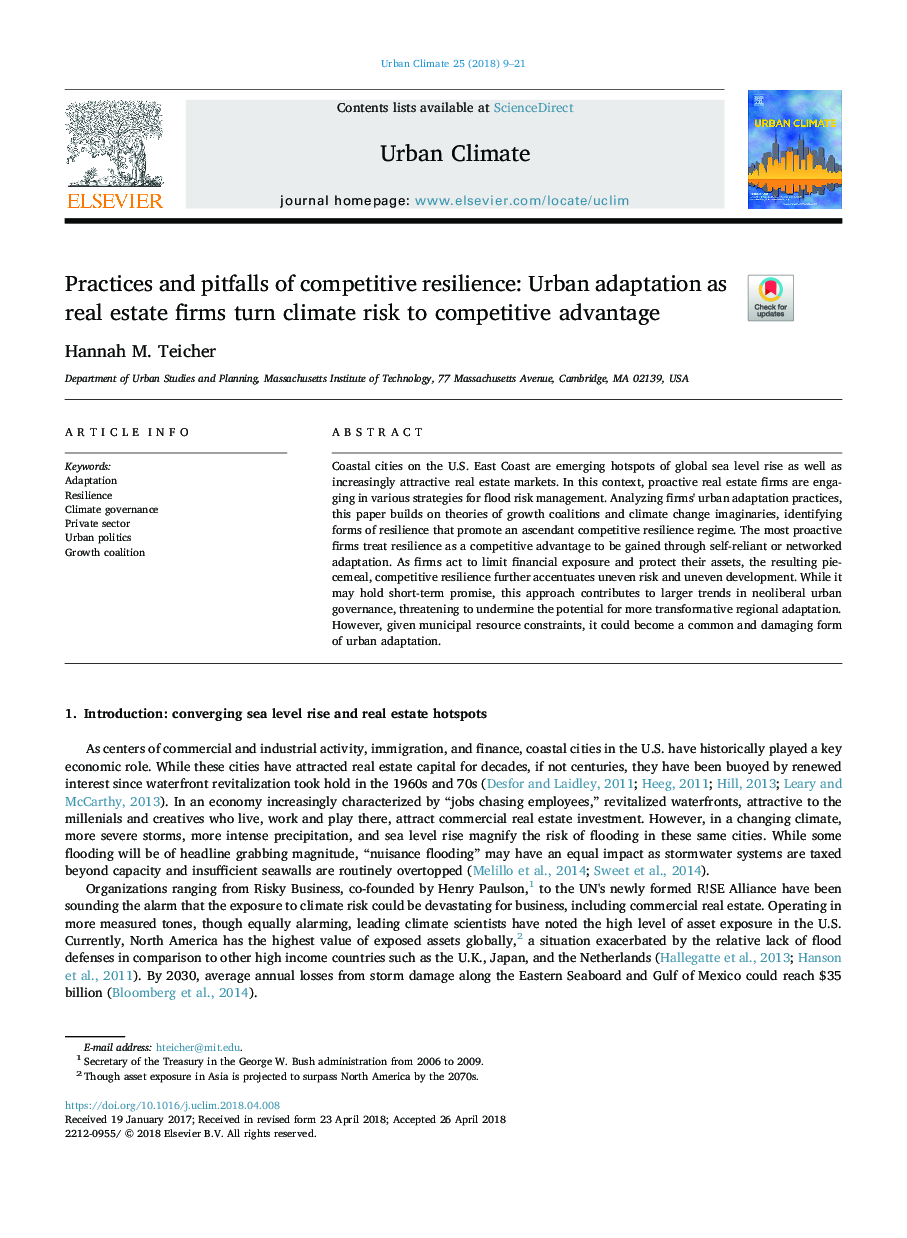| Article ID | Journal | Published Year | Pages | File Type |
|---|---|---|---|---|
| 6576819 | Urban Climate | 2018 | 13 Pages |
Abstract
Coastal cities on the U.S. East Coast are emerging hotspots of global sea level rise as well as increasingly attractive real estate markets. In this context, proactive real estate firms are engaging in various strategies for flood risk management. Analyzing firms' urban adaptation practices, this paper builds on theories of growth coalitions and climate change imaginaries, identifying forms of resilience that promote an ascendant competitive resilience regime. The most proactive firms treat resilience as a competitive advantage to be gained through self-reliant or networked adaptation. As firms act to limit financial exposure and protect their assets, the resulting piecemeal, competitive resilience further accentuates uneven risk and uneven development. While it may hold short-term promise, this approach contributes to larger trends in neoliberal urban governance, threatening to undermine the potential for more transformative regional adaptation. However, given municipal resource constraints, it could become a common and damaging form of urban adaptation.
Related Topics
Physical Sciences and Engineering
Earth and Planetary Sciences
Earth and Planetary Sciences (General)
Authors
Hannah M. Teicher,
